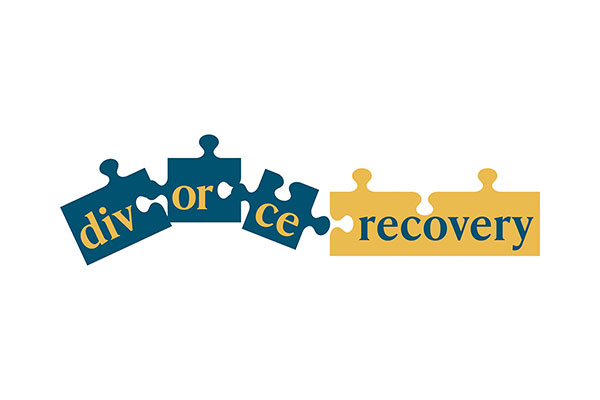As you may have noticed your kids like to be in front of a screen. Many parents thought they knew how much their teen loved their devices but had no idea until now. Here is some advice on how to navigate parenting amidst the lockdown turned device addiction.
First, check in with them. Build your relationship and provide a source of support. All effective influence from parents comes from a solid relationship with healthy boundariesBoundaries in group therapy are the limits established to maintain a safe and respectful environment... (not too close, not too distant). Ask open ended questions, validate, and explore their concerns in regards to what they may be facing (e.g. keeping up with courses, issues with friends, etc.). When they share, try not to over-emphasize the positive or provide them your custom-tailored gratitude list. There is a time for this, but it’s not then. Also, parents need their support too! Make sure to get some time to yourself if possible – call a friend, do a yoga class online, be open to support from your friends or significant other. It’s so easy to get engulfed with the anxieties and power struggles at home if you aren’t taking care of yourself. It helps you get that 30,000ft wisdom when you are in 2ft problem solving mode.
The first thing to do with your son or daughter either back at home or now in the house full-time is to set expectations. Get an idea of what is needed to be done. Time for online classes, homework, and whatever else is required to take care of business and continue to lead a healthy life (e.g. regular exercise, etc.). After you have an idea of what needs to be done – turn over the schedule to them! Have your son/daughter write down what they believe is a good weekly plan to stay on top of everything and keep a healthy mind and body. This includes having them write into the schedule time they expect to spend on the phone, video games, snapchat, Instagram, Tik-Tok or whatever the heck else is out there these days . You will be surprised what comes back, its often not the minimum you might expect. Once they have done this, comb it over with them. Ask questions. Lean a little and they will too. Let them feel like it is their schedule, not yours. Get there by leading-from-behind, asking good questions and helping them construct a wise plan. It is okay to say, “I need you to do X, Y, and Z chores while you are home and to take your sister to her counseling appointments on Tuesdays.” Also, and this is very important, have a very clear set of consequences of what will happen if things veer of track, but remember to be flexible and encourage them to communicate as much as they can in advance if any major changes in schedule happen. Here is a schedule a mother and son (college aged and at home) just worked out in my recent family therapy session.
Weekdays:
Alarm set for 7AM
7:15 – 8:15 Breakfast
8:15- 8:30 Meditation
8:30- 9:15 Going for a run around the neighborhood/time to be outdoors
9:15 – 10 Shower and get ready for class
10 – 2 Class
2-3:30/4 Homework
4 Onwards – Free time to use as you would like (if this meant hours of digital life, that’s ok)
10PM bedtime
*One weekend night has to be spent playing family game night and both agreed to the first part of the morning schedule and an hour for homework each day but the rest was open.
What’s most important is that life is attended to outside of digital life and on-screen fun. Parents underestimate how much of a social life can be maintained on these various apps or through the Xbox. It can be really grounding for teens and young adults to connect with others on these platforms and maintain important relationships or just to feel connected. I am sorry, but family won’t do it all for their needs. It’s when all other things are cast aside and neglected for the sake of digital life that we have issues. You can try and encourage your teen or young adult to go with you for a bike ride, buy a book you know they might like, or ask to join you for a game of “What do you meme?” but that’s all that is in your power. Explain why too much time on a screen might be unhealthy and why it’s important to invest time other places but creating a power struggle around it will only backfire. They may go on just to test the limits and make sure they can, even when they really don’t feel like being on a screen.
If things go awry and life after the agreement resembles nothing that was written down on that piece of paper here is what you do. First, drop the consequence. Don’t do it with anger, disappointment, sadness, nothing – no need to communicate you are doing it. Just follow through. If they ask “Wait! Why did you turn off the internet!?” You say, “You did not attend class today, it will be back on tomorrow and we can try it again, sorry Johnny.” Have a go-to mantra or response to any incessant questions afterwards “I’m so sorry Johnny, this isn’t what we had written down but I am hopeful tomorrow will be different.” BUTTT! “Repeat the above.” If you give in once, just once, after a period of sticking to your guns this is called “Variable Ratio Reinforcement” and it is why Vegas racks in bagillions of dollars every year in gambling. A hit of getting what you want amidst a series of no’s boosts the likelihood of that behavior occurring in the future exponentially (e.g. pestering for the internet back on).
Where you DO want to bring all the positivity, energy, and attention is when things are going great. Which so many parents forget to do. Give them some authentic feedbackFeedback in group therapy refers to the constructive comments and reflections shared among group mem.... “Hey Johnny, man I am so proud of you for just handling business and following through on everything we talked about a couple weeks ago. I have noticed how hard you have been working and taking care of yourself. It’s actually really inspiring to me!” Maybe even snag them the video game they have been asking for the last few months as a sign of approval and appreciation. Clapping when things are going well does much more for behavior change than stomping when expectations are not met. Please remember this! Just imagine how many people would speed less if they got a discount on their insurance every month versus a ticket once every other year. Tickets create surveying behavior and manipulation, discounts and positive incentive create sustained good behavior.
Remember! It’s a hard time for all. Try and use this time to connect and build/rebuild your relationship. Your kid/teen is always watching so make sure to model healthy phone and device behavior yourself. This speaks louder than anything. Follow some of the guidelines above and things should ride smoothly. Wishing everyone out there health, healing, and happiness.
Keil Psych Group
714-334-5497





